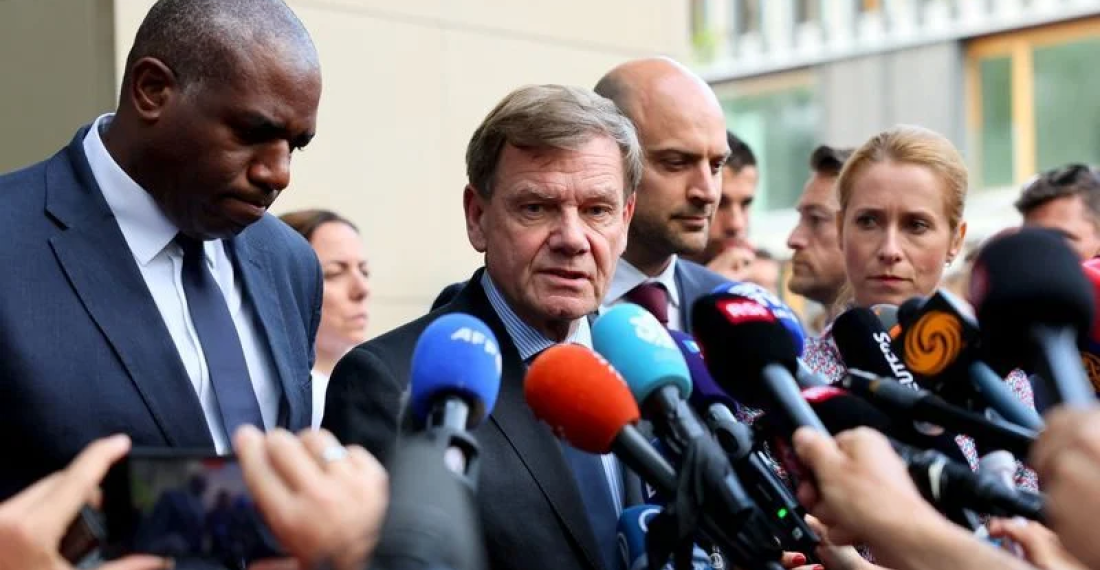The Foreign Ministers of Germany, France and the United Kingdom, together with the EU High Representative for Foreign and Security Policy, on Friday met the Iranian Foreign Minister in Geneva, in an effort to find a diplomatic solution to the current crises in the Middle East, caused by Israel's attack on Iran and subsequent military action by Israel and Iran.
US president Donald Trump appeared to give a two week window for diplomacy to work. Iran has refused to have direct contact with the US whilst the Israeli attacks continue.
Friday’s meeting between Iran’s foreign minister and top EU diplomats yielded hopes of further talks but no indication of any immediate concrete breakthrough, a week after the crisis centered on the Iranian nuclear program erupted into war between Israel and Tehran.
source: commonspace.eu with agencies
photo: France’s Minister for Europe and Foreign Affairs Jean-Noel Barrot, Britain’s Foreign Secretary David Lammy, Germany’s Foreign Minister Johann Wadephul and European Union High Representative for Foreign Affairs and Security Policy, Kaja Kallas, answer questions after their meeting with the Iranian foreign minister in Geneva on 20 June.






